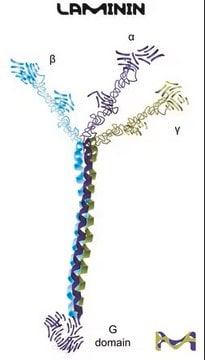PC-12 Cell Line from rat
NOTE: Both the cell line and DNA from the cell line may be available for this product. Please choose -1VL or VIAL for cells, or -DNA-5UG for DNA, 88022401, rat adrenal gland (phaeochromocytoma), Not specified
Sinónimos:
PC12 Cells
About This Item
Productos recomendados
origen biológico
rat adrenal gland (phaeochromocytoma)
envase
tube of 5 μg 88022401-DNA-5UG
pkg of vial of cells 88022401-1VL
modo de crecimiento
Suspension
cariotipo
Not specified
morfología
Not specified
productos
Catecholamine, dopamine and NPP
receptores
Not specified
técnicas
cell culture | mammalian: suitable
enfermedades relevantes
cancer
Condiciones de envío
dry ice
temp. de almacenamiento
−196°C
Origen línea celular
Descripción línea celular
Aplicación
Medio de cultivo
Rutina de subcultivo
Otras notas
Elija entre una de las versiones más recientes:
Certificados de análisis (COA)
It looks like we've run into a problem, but you can still download Certificates of Analysis from our Documentos section.
Si necesita más asistencia, póngase en contacto con Atención al cliente
¿Ya tiene este producto?
Encuentre la documentación para los productos que ha comprado recientemente en la Biblioteca de documentos.
Filtros activos
Nuestro equipo de científicos tiene experiencia en todas las áreas de investigación: Ciencias de la vida, Ciencia de los materiales, Síntesis química, Cromatografía, Analítica y muchas otras.
Póngase en contacto con el Servicio técnico







